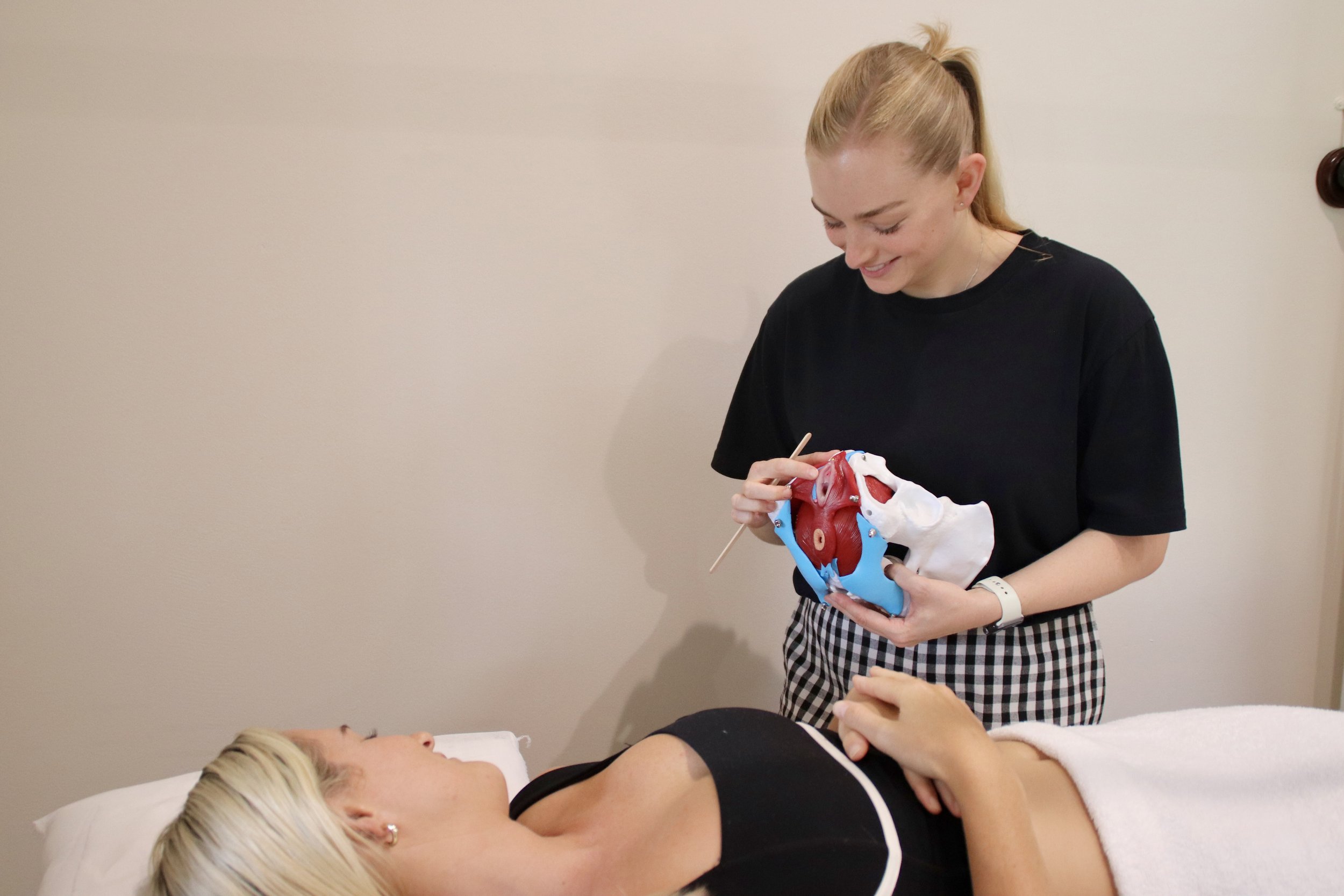Bowel Dysfunction
Bowel dysfunction refers to a range of disorders that affect normal bowel function, including constipation, diarrhoea, incontinence, and obstructed or incomplete defecation. For many women, bowel dysfunction can be both physically uncomfortable and emotionally distressing, and it often impacts their quality of life. Conditions like constipation, faecal incontinence, and pelvic organ prolapse can lead to bowel dysfunction, and these problems are often related to or exacerbated by pelvic floor dysfunction.
COMMON TYPES OF BOWEL DYSFUNCTION IN WOMEN:
-
Difficulty passing stools, infrequent bowel movements, or feeling that the bowel hasn’t fully emptied.
Constipation is often caused by poor diet, insufficient fluid intake, or pelvic floor muscle dysfunction, among other factors.
Symptoms include straining during bowel movements, infrequent stools (less than 3 times a week), hard or lumpy stools, and the feeling of incomplete evacuation.
-
A sudden, strong urge to open bowels that can be accompanied with the involuntary leakage of faeces.
Anal incontinence can occur in absence of an urge and can involve leakage of faeces, mucus or wind.
This is often caused by weakened or damaged pelvic floor muscles around the anus from pregnancy or childbirth, but can also occur with constipation, diarrhoea, haemorrhoids, anal prolapse, pelvic surgery, pelvic radiation, or nerve damage.
-
A posterior vaginal wall prolapse can cause your rectum to pocket into the back wall of the vagina especially when your rectum is full with stool.
This can cause difficulty when trying to pass a bowel movement, known as obstructed defecation.
Also known as a rectal prolapse or rectocele
-
This is where part of the rectum slips out or protrudes through the anus
This can cause a bulge, feelings of heaviness or pressure in the rectum, feelings of incomplete emptying when passing a bowel movement, pain or discomfort, and/or leakage of stool/wind.
-
Haemorrhoids are swollen veins in the lower rectum or anus, often causing pain, itching, bleeding, or discomfort, especially during bowel movements.
Anal fissures are are small tears or cuts in the skin around the anus, often causing pain and bleeding during or after bowel movements.
These are commonly associated with pregnancy and chronic constipation.
Pelvic floor physiotherapy can play a vital role in addressing bowel dysfunction, particularly when it is related to pelvic floor dysfunction. Treatment and management can involve pelvic floor muscle training, manual therapy, support devices, and education regarding bowel retraining, defecation positioning, adequate fibre and fluid intake, and relaxation techniques. Physiotherapy provides a non-invasive, holistic approach to improving bowel health and enhancing quality of life for women affected by these conditions.


